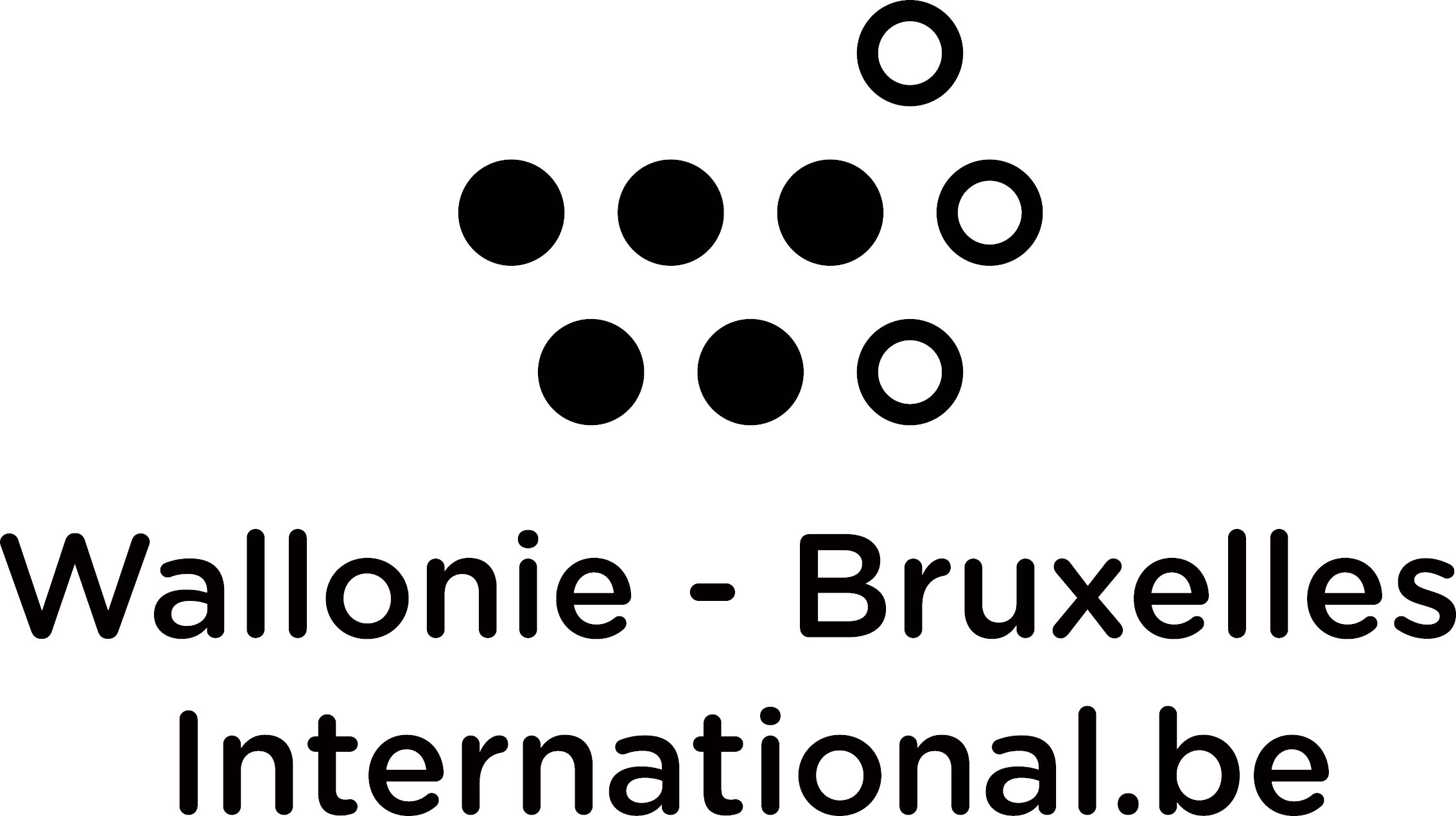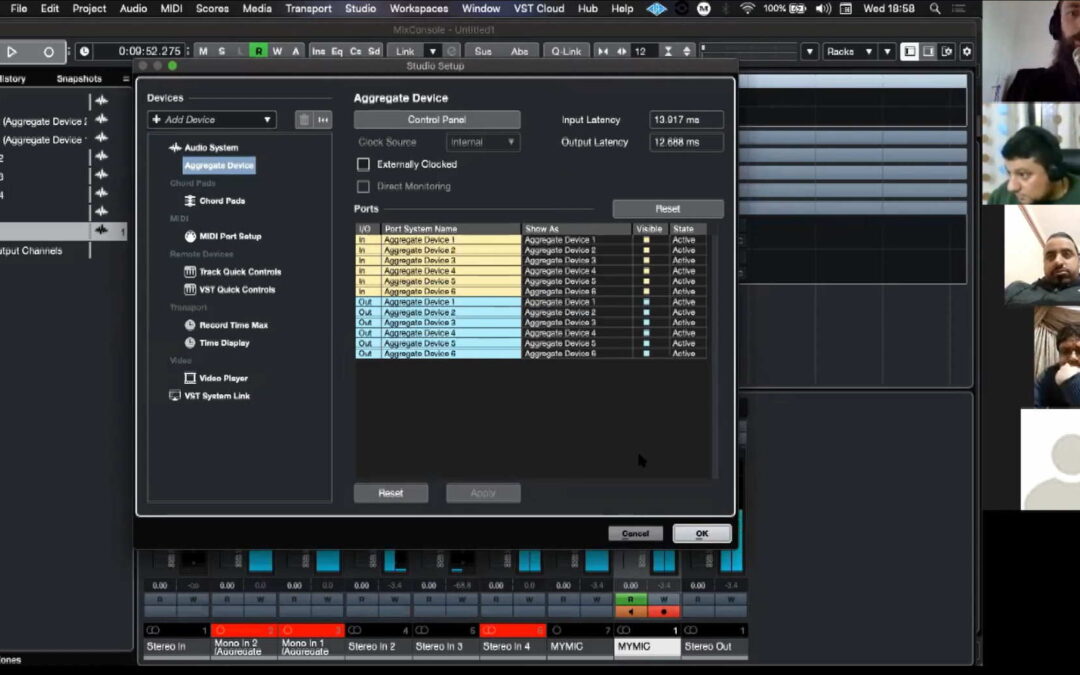As part of the Delia Arts Center in Gaza’s mission to bridge the gaps and fill the needs of the musicians, it was apparent to us that training and courses available to musicians in Gaza, whether through local and international institutions or private instruction, are very minimal and are not designed for all levels. This was the starting point for our work towards providing training for beginners and intermediate levels in music production. In accordance to our current situation with the pandemic, we have been strengthening the tools to continue to provide effective support through online and virtual tools.
 Our partners in AfriScene, an association that was born in 2017 in order to support the development of the cultural sector in West Africa through capacity-building, training people in the various technical jobs needed in the fields of entertainment and the audiovisual sector. The association can also intervene in any other country needing its support for the emancipation of its audiovisual sector. The co-founder of AfriScene, Ludovich Sirtaine, has been a sound engineer for 16 years in the live industry and also in the studio.
Our partners in AfriScene, an association that was born in 2017 in order to support the development of the cultural sector in West Africa through capacity-building, training people in the various technical jobs needed in the fields of entertainment and the audiovisual sector. The association can also intervene in any other country needing its support for the emancipation of its audiovisual sector. The co-founder of AfriScene, Ludovich Sirtaine, has been a sound engineer for 16 years in the live industry and also in the studio.
Ludo started to travel in Africa in 2015 with bands he worked for and he started to have a wide network of connections with local organizations who were asking him to manage the sound for their events. When he was touring with African bands, he realized that the reason why he was in high demand was because there was a lack of training and skills and knowledge around sound engineering. He started to work in the direction of training locals to prevent foreigners from taking over their jobs. Many locals were interested in acquiring the skills if they had the proper training and this would result in creating sustainable economic opportunities for these individuals who will pass on their skills to future generations ensuring the continuity and it would optimally cost much less for any festival or organization that is looking to employ sound engineers. He started looking for organizations that he could partner with and soon realized that there were no efforts in that direction. He came across AfriScene, an entity that existed by never reached its full potential, and helped it grow by managing it well with the locals. It became a legal structure in 2017 and is now an emerging force in Africa and around the world in helping locals to develop their skills.
 Throughout his work with AfriScene, he also realized that the training is done on a short-term basis that doesn’t bring the sustainable results and the autonomy for the locals that he was hoping for. These projects cost a lot and gave back too little. Therefore, he is focusing his efforts on building local facilities run by locals, in which AfriScene would train the future trainers who will be supported by facility that was created to ensure autonomy from generation to generation while being able to generate its own resources to be self-sustainable and on-going. The best formula, according to his experience, is to allow foreigners to give masterclasses remotely to local trainers in order to reduce costs, who will in return train others in on-sight long-term training courses and classes that have a much better impact than short-term projects that cost a lot and have a punctual impact.
Throughout his work with AfriScene, he also realized that the training is done on a short-term basis that doesn’t bring the sustainable results and the autonomy for the locals that he was hoping for. These projects cost a lot and gave back too little. Therefore, he is focusing his efforts on building local facilities run by locals, in which AfriScene would train the future trainers who will be supported by facility that was created to ensure autonomy from generation to generation while being able to generate its own resources to be self-sustainable and on-going. The best formula, according to his experience, is to allow foreigners to give masterclasses remotely to local trainers in order to reduce costs, who will in return train others in on-sight long-term training courses and classes that have a much better impact than short-term projects that cost a lot and have a punctual impact.
Returning to the music scene in Gaza, Ludovich partnered with us through his online training in a first attempt to refine the musical tools and skills of the local music producers to be able to do better productions in all its stages by themselves using computer generated resources. The goal is to enable them to produce professional high-quality content that they can share with the world. The need for such training is big; he found through the training that there are many talented artists in Gaza but there is a lack of opportunities to practice and develop their skills to produce the best content they can and share it with the world that doesn’t have the accurate perception on the state of music in Gaza. The training aims to create music together with the participants in joint efforts to work on their technical skills on the software, on improving the sound of music production, creating and sharing music, discussion and exchanges on the local challenges and how to solve them and have a high-quality output that we can share to promote their work to have a window to the outside world.
With the generous support from the Wallonie-Bruxelles International , the body responsible for international relations in Wallonia-Brussels and instrument of the international policy led by Wallonia, the Wallonia-Brussels Federation and the French Community Commission of the Brussels-Capital Region who believe in the work that AfriScene and the Delia Arts Foundation are doing, an online music production course was launched, targeting musicians of all ages, gender and backgrounds.
The course includes 3 phases:
1- An introduction to sound engineering: it consists of online instructions given by Ludovich on Cubase. The program was available to all participants and translation to Arabic was also available.
2- Specific sound engineering training: Also available in Arabic, this part goes further into the details. At the end of it, the participants are required to work on their own tracks, whether through their own resources or by resorting to the equipment present at the Delia Arts Center.
3- Practical training/ project review: this is where Ludovich works with each of the participants on their own project and helps them elevate the quality of the output.
By the end of this training course, Ludovich is looking to do more programs that allow the exchange of knowledge on music production, not only in theory, but in practice as well. He hopes that Wallonie-Bruxelles International and other organizations would be willing to support such programs that are going to be given continuously in order to train the future trainers and obtain the autonomy and sustainability we seek and help boost the careers of those local producers into having a professional setting, building a bridge between Gaza and the rest of the world and exchange skills and musical processes.
The project ends in August 2021, and the participants will share with all of us their feedback on the course and evaluation. The Delia Arts Foundation, in collaboration with AfriScene, will then work on providing the necessary opportunities to reach the sustainability we seek in creating an autonomous local Palestinian community of young music producers who are able to train others and take their music to the world. Stay tuned for more information on how the course ends and how we plan to keep creating those opportunities!


